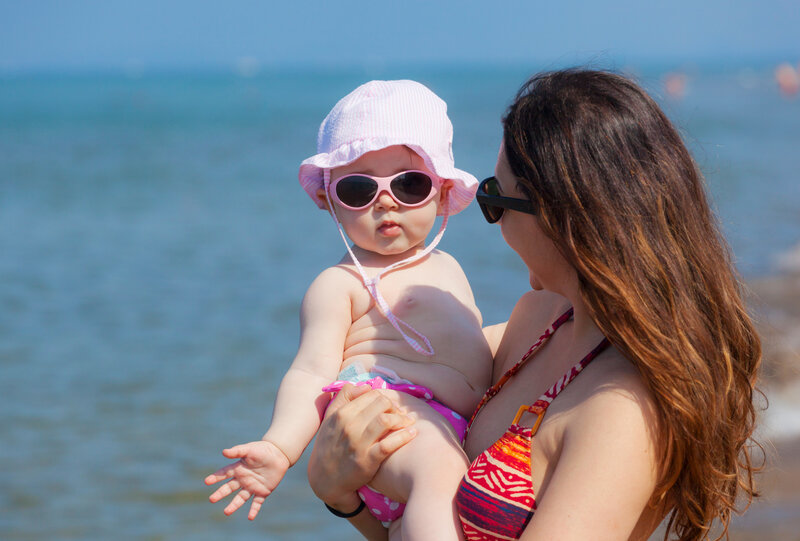Posted by: Atlantic Eye Institute in Education

What does eye protection mean to you? Here at Atlantic Eye Insitute, we take a comprehensive approach when it comes to teaching patients how to protect their eyes in all types of situations – and during all kinds of activities.
5 Things You Can Do To Protect Your Eyes
Of course, as optometrists and ophthalmologists, we can’t help but mention that attending annual eye exams is one of the very best ways to protect your eyes and vision health throughout life. However, today we’re highlighting five important ways to protect your eyes beyond the optometrist’s office.
Make healthy lifestyle choices
Last year we published a post about ten different medical issues we detect during eye exams. The reason for that is the body is a complete whole – and disease in one area inevitably affects just about every other one of the body’s systems.
Your lifestyle choices play a fundamental role in overall health, including eye and vision health. That is why we support patients in pursuing a healthy diet, regular exercise, stress management, and quitting unhealthy habits. The healthier your body is, the less likely you are to experience diabetes, obesity, high blood pressure, and other health issues that put you at risk for conditions leading to vision loss.
And don’t forget that living a healthy lifestyle also includes healthy sleep habits, as sleep serves as the body’s healing and regenerating powerhouse. If you’re not getting enough rest each night, odds are you’re experiencing effects in the body, mind, and spirit – not to mention tired eyes.
Use a well-rounded sun protection plan
UV rays cause cancer, including eye cancer, and also compromise cellular DNA, leading to tissue breakdown. Excessive sun exposure can cause various issues that hurt the eyes and lead to vision loss. If you spend time outdoors:
- Wear sunglasses with 100% UV protection – the more coverage, the better.
- Don a hat.
- Stay in the shade as much as possible (keep a portable umbrella or shade structure in the car for low- or no-shade areas).
UV rays penetrate through clouds and are magnified by water and snow, so keep that in mind as well. Always wear UV-proof sunglasses or goggles when skiing or playing in the snow, and take extra precautions on sunny days near the water.
Practice the 20 20 20 rule to prevent eye strain
Eye strain doesn’t cause vision loss, but it does lead to other unpleasant side effects. Children and adults can unknowingly experience eye strain that shows up in the form of:
- Headaches
- Eye aches
- The impulse to rub the eyes (which can lead to surface scratches and corneal abrasion)
- Blurred vision
- Fatigue
- Inability to focus
If you work on a computer or spend lots of time reading, practice the 20 20 20 rule. This means that every 20 minutes, you focus on something at least 20 feet away for at least 20 seconds. While you’re at it, stand up and stretch, touch your toes, and sip on some water. It will do your body good and provides the rest your eyes need to protect them from eye strain.
Wear safety glasses while working or playing sports
Flying debris is a leading cause of eye injuries, ranging from corneal scratches or lacerations across the eye’s surface to penetrations. Always wear safety glasses if there’s any risk of eye injury. Whether you work in an industry where debris or launched objects are a possibility, or you’re spending some time doing yard work or a home improvement project donning a pair of safety glasses may save you from a serious eye injury.
Always remember that eyeglasses are not meant to serve as eye protection. In fact, wearing regular glasses can make an injury more severe as they aren’t designed to absorb impact, and broken glasses parts can cause facial lacerations or penetrate the eyes.
If you wear prescription eyeglasses and use safety glasses regularly, speak to your optometrist about prescription options that make life less cumbersome. The investment is worth it, and you can ask your tax preparer whether the expense is a work-related tax deduction. Depending on your or your child’s extracurricular interests and activities, you may also need to use face shields or sport-specific eye protection. Don’t use substitutes.
Take good care of contact lenses to protect your eyes
The majority of contact lenses are disposable, so contact lens care has never been easier. Even so, there are certain things you should never do to protect your eyes from contact-related discomfort or injury.
- Never sleep with contact lenses.
- Do not replace a contact lens if you’ve taken it out to address something in your eye.
- Never skip the contact lens cleaning ritual if you remove your lenses and want to re-wear them later.
- Do not rub your eyes while contact lenses are in.
If you experience contact lens irritation and wear makeup, try skipping eye makeup for a day or two to see if that helps. Always contact your optometrist if contacts are uncomfortable despite your efforts to follow the care instructions.
Atlantic Eye Institute Promotes Well-Rounded Eye Protection & Care
Do you have questions about how you can protect your eyes? Would you like to learn more about prescription safety glasses, goggles, or other forms of eye protection? Schedule an appointment at Atlantic Eye Institute. We believe proactive prevention is one of the best ways to protect your eyes from injury, disease, and vision loss.



